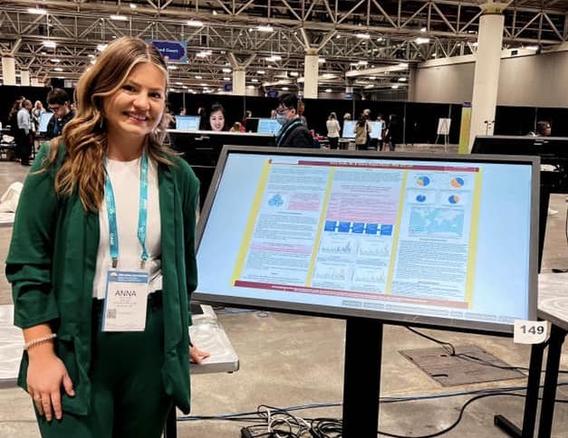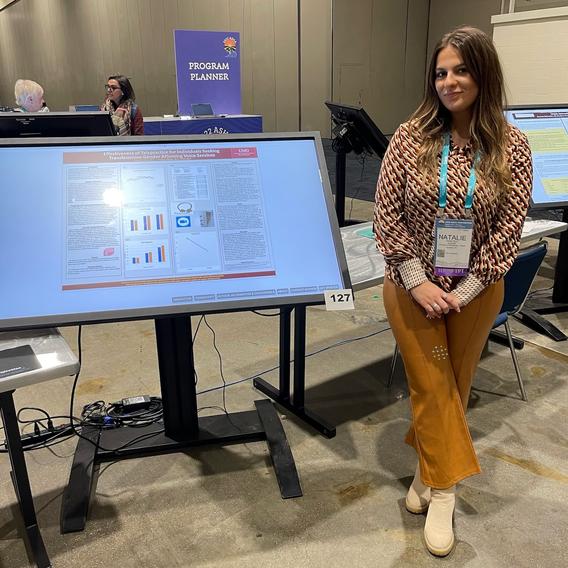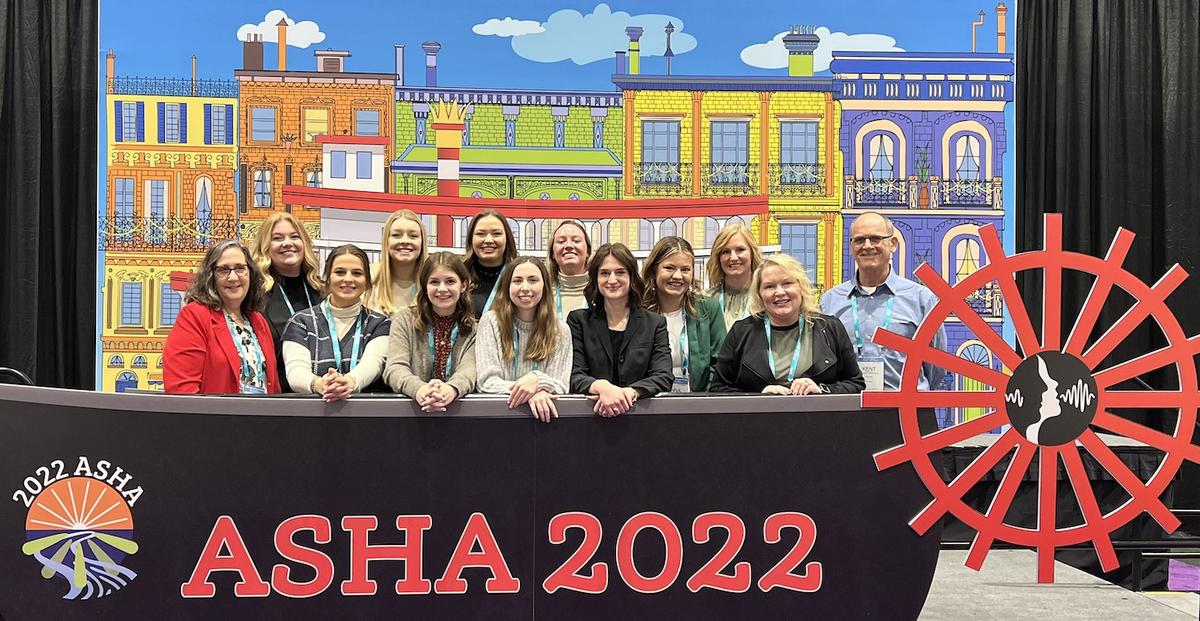“The world is changing, and we need to change with it,” says Natalie Olson, a graduate student in the Department of Communication Sciences and Disorders (CSD). “We serve many different populations, and our research needs to reflect that.”

Olson and Anna Smith, another student in the CSD master’s program, recently presented their research projects at the national American Speech-Language-Hearing Association (ASHA) convention in New Orleans. Both projects addressed an important topic: inclusivity.
Smith’s project focused on the use of augmentative and alternative communication (AAC) devices. “Prior to grad school and this project, I really did not know much about AAC. It’s not really talked about until grad school, which is why I jumped on the opportunity to take part in this project,” she says. Smith worked with Associate Professor Jolene Hyppa-Martin on the research, conducting an analysis of various case studies and articles up to 30 years ago. Smith specifically looked at the diversity of the authors and clients, noting their race.
Smith was disheartened by what she found. “There’s this idea that speech-language pathologists are the whitest profession, and the research I conducted supported that … 91 percent clinicians are identifying as Caucasian, while only nine percent identify as individuals from underrepresented racial groups,” Smith states. “It indicates this need for diversity, so we are able to treat each population in the best way possible.”
Olson’s project came about in a different manner than Smith’s but contained valuable meaning and experiences for her as well.

“As a first-year grad student, I was actually assigned a transgender client who wanted to participate in voice therapy. I didn’t know much about voice services, so that client really helped me learn more about that kind of practice.”
This had such an impact that Olson decided to develop her own research project around such services, working with Professor Mark Mizuko as her graduate research advisor and Instructor Ashley Weber. She focused on the types of services available for transgender clients and how accessible they were.
Ultimately, Olson discovered voice services could be made much more accessible to various populations through the use of different online speech analysis systems. This means that therapy could occur online, with no need for a client to have to leave their home.
“It’s convenient for the clients and it demonstrates that you don’t have to use fancy equipment for these kinds of voice services,” Olson says. “It can be done in your own space with free and accessible software.”
Both Smith and Olson emphasized the importance of including diverse perspectives to gain further knowledge and provide the best care possible. As Smith asks, “How are we representing different populations and points of view in our work? To successfully serve others you have to educate yourself on those backgrounds and topics.”
About the Department of Communication Sciences & Disorders
CSD faculty and students who attended AHSA are pictured in the feature photo at the top.
This story was written by UMD student Erika Doetkott, who is majoring in Communication Sciences and Disorders. Erika assists Lissa Maki with communications for the College of Education and Human Service Professions.
